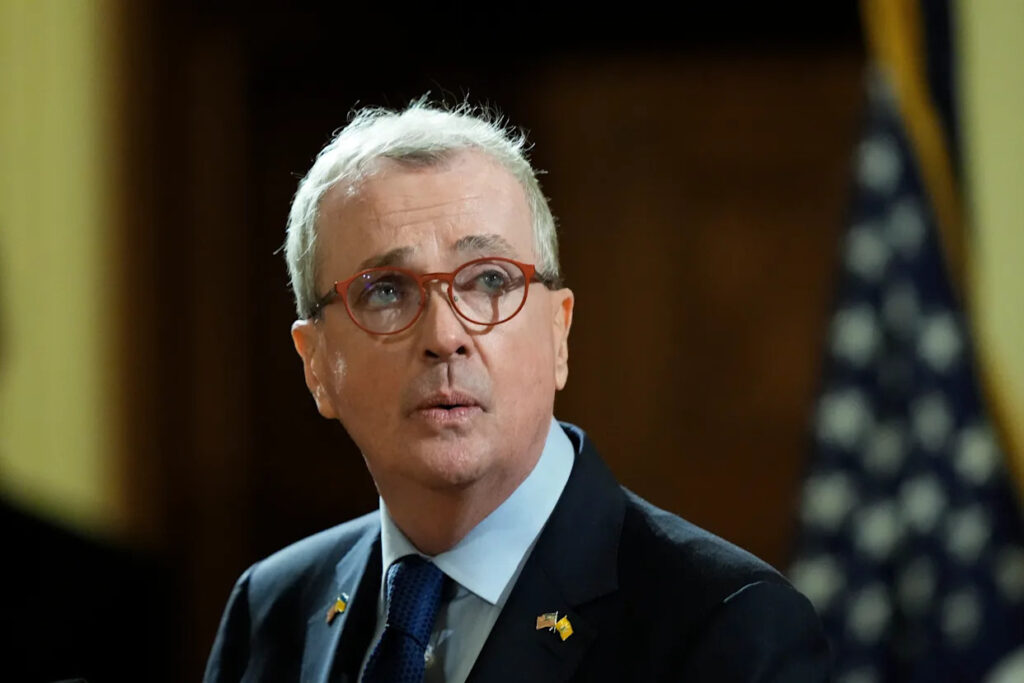
In a dramatic turn of events, New Jersey Governor Phil Murphy signed his final budget on Monday night, only to face fierce criticism from unexpected quarters, including members of his own administration and long-time allies. The $58.8 billion spending plan, which marks Murphy’s last as governor, has drawn ire for various provisions, highlighting the challenges he faces as he approaches lame-duck status.
Among the most vocal critics were two members of Murphy’s Cabinet, who labeled parts of the budget as a “terrible idea” and “a great disappointment.” Unions that have traditionally supported Murphy also expressed their discontent, indicating a shift in the political landscape as the term-limited Democrat nears the end of his tenure.
Internal Dissent and Union Backlash
Steve Tully, executive director of the AFSCME New Jersey Council 63 union, criticized Murphy for prioritizing corporate interests over those of working people. “He remains a Wall Street banker at heart and has put the interests of the insurance companies and CEOs above the interests of everyday working people,” Tully stated, referencing cuts to health care spending for state workers.
“While Governor Murphy heads to his villa in Italy this summer, tens of thousands of workers will be worrying how they are going to be able to afford the astronomical health care increases that are coming.” — Steve Tully
Despite the backlash, Murphy and top legislative Democrats highlighted key elements of the budget, including a $7.2 billion payment into the state’s pension fund, $12 billion for public schools, and ongoing property tax relief programs. The state surplus now stands at $6.7 billion, significantly higher than the $409 million surplus when Murphy first took office.
Cabinet Critiques and Legislative Tensions
The budget’s passage was marred by criticism from within Murphy’s own ranks. Attorney General Matt Platkin, a close ally, condemned plans to allocate $45 million from opioid settlement funds to hospitals, stating that it undermines efforts to address the opioid crisis. Acting Comptroller Kevin Walsh also criticized the budget for allowing state funds to flow to low-rated nursing homes, calling it a “giveaway” that could worsen care standards.
“This budget provision is a terrible idea. It is a giveaway to the nursing home industry and will worsen care in nursing homes.” — Kevin Walsh
Senate President Nick Scutari, a key figure in budget negotiations, dismissed the criticisms from Platkin and Walsh, questioning their authority to challenge the budget. “When did they run for office? Did they run for office?” Scutari retorted, emphasizing the legislative process.
Political Implications and Future Concerns
The budget comes at a critical time, with the governor’s race to succeed Murphy underway and all seats in the state Assembly up for election this fall. Legislative Democrats are keen to showcase the continuation of popular programs like the ANCHOR property tax relief initiative and the Senior Freeze program.
However, the budget’s structural deficit of $1.5 billion and contentious provisions have raised concerns about its long-term viability. A last-minute addition requiring $100 million in savings from the state government workers’ health program has strained Murphy’s relationship with public-sector unions, prompting calls for further discussions on health insurance costs.
“The rich get richer and the poor get nothing. At this point, the Legislature is throwing money at nursing home owners and stripping away the state’s own ability to ensure better quality.” — Laurie Facciarossa Brewer, Long-Term Care Ombudsperson
The budget also diverts $190 million from the Board of Public Utilities’ clean energy fund to support NJ Transit, a move criticized by environmental groups as a misuse of ratepayer dollars. Additionally, modified tax increases on online gambling and high-value real estate sales have been introduced, adding to the budget’s complexity.
Looking Ahead: Federal Uncertainty and Legislative Challenges
As New Jersey navigates its financial future, attention turns to potential federal funding cuts that could impact Medicaid and other programs. Senate Budget and Appropriations Chair Paul Sarlo emphasized the need for preparedness, suggesting that hospital funding could mitigate federal Medicaid cuts.
The budget passed with a 26-13 vote in the Senate and a 52-27-1 vote in the Assembly, with bipartisan support from two GOP lawmakers. However, the looming threat of federal budgetary changes remains a significant concern for state leaders.
“I think what concerns people is what’s going to come out of the federal government. Far as I can tell, that surplus can’t make up for humongous federal budgetary cuts.” — Nick Scutari
As Governor Murphy’s final term draws to a close, the contentious budget underscores the complexities of governance and the challenges of balancing fiscal responsibility with political realities. The coming months will be crucial in determining how New Jersey navigates these challenges and prepares for a future beyond Murphy’s administration.







